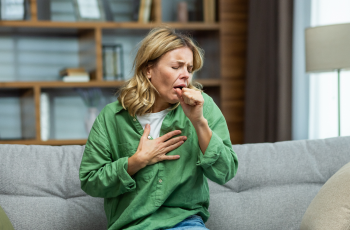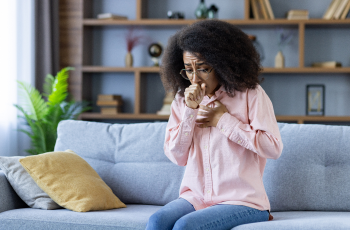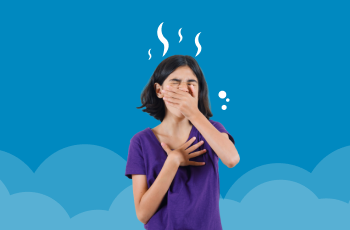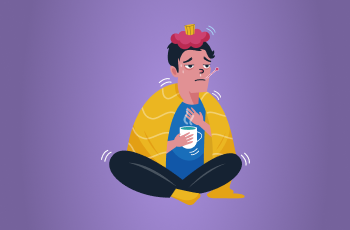Home Remedies For Dry Cough At Night For Children And Infants
Written by Dr Nelson Lau - MBBS FRACGP, GP & Digital Health Specialist
The persistent dry cough that plagues children and infants at night can be a trying ordeal for parents and little ones alike. Unlike a productive cough that expels mucus or irritants from the lungs, a dry cough offers no such relief, and its nighttime persistence can severely disrupt sleep for the entire household. Understanding the underlying causes and implementing judicious home remedies can provide much-needed respite and comfort for your child.
Causes of Dry Cough in the Young
Dry coughs in children and infants can arise from various sources, including viral and chest infections, allergies, and environmental irritants like smoke or dry air. The nighttime hours can exacerbate these coughs due to the horizontal positioning, which can often trigger the cough.
Effective Home Remedies for Dry Cough
Here are some recommended home remedies for relieving dry cough at night in children and infants. However, it’s crucial to ensure that these remedies are age-appropriate and to introduce them gradually to monitor for any adverse reactions:
- Honey and Warm Water: A Gentle Balm: For children over one year old, honey is a natural cough suppressant with antimicrobial properties. A spoonful of honey mixed with warm water can soothe an irritated throat and alleviate coughing spells. Note: Honey is not suitable for infants under one year due to the risk of botulism.
- The Humidifier: A Moist Haven: A humidifier adds much-needed moisture to the air, easing breathing and relieving the dryness that can trigger a cough. Ensure the humidifier is kept clean to prevent the spread of bacteria or mould. A humidifier is especially useful if sleeping with the air-conditioner on at night which can dry the air.
- Hydration-Warm Fluids as a Gentle Tonic: Keeping your child’s throat moist is vital. Warm, caffeine-free teas or simply warm water can provide relief. For infants, ensure regular breastfeeding or bottle-feeding to maintain hydration.
- Elevating the Head During Sleep: Elevating your child’s head with extra pillows (for children old enough to safely use a pillow) or adjusting the crib’s mattress can help minimise coughing by enhancing breathing. (Pillows should not be used for children under 2 years of age due to the risk of suffocation.)
- Steam Inhalation: A steamy bathroom can help loosen congestion and soothe the throat. Supervision is crucial to prevent burns. Also, bear in mind that the steam may cause more distress in some children so do not persist if this is the case
- Saltwater Gargle: For older children, gargling with salt water can offer temporary relief from throat irritation.
- Avoiding Aggravating Factors to Prevent Exacerbation: Steer clear of irritants like tobacco smoke or heavily scented products, which can aggravate a dry cough. Additionally, avoid giving cold or very acidic drinks at night, as they can further irritate the throat.
When to Seek Professional Medical Advice
Consult a doctor if the cough persists for more than a week, is accompanied by a high fever, difficulty breathing, or if the child is under three months old. Immediate medical attention is warranted if you notice any signs of distress or unusual symptoms. A dry cough at night can also be caused by asthma and should be taken into consideration, although it is difficult to diagnose under the age of 5.
While home remedies can provide relief, they do not replace professional diagnosis and treatment. If a cough persists or is severe, seeking medical advice is crucial.
The Convenience of Telehealth in Managing Nighttime Dry Cough
Telehealth services offer a convenient avenue to seek medical advice without leaving your home, especially beneficial for non-urgent symptoms of a dry cough. A telehealth consultation can help determine if in-person care is necessary.
Frequently Asked Questions
Can a Dry Cough at Night Resolve Spontaneously?
Many cases of dry cough are the result of viral infections and will improve on their own. However, monitoring the child’s health for any changes is essential.
What are Potential Complications if a Dry Cough is Neglected?
A persistent dry cough can signal underlying issues like asthma or allergies. If unaddressed, it can lead to disrupted sleep, reduced immunity, and in severe cases, respiratory complications.
How to Distinguish a Dry Cough from Other Types of Coughs?
A dry cough produces no mucus and sounds harsh and raspy, often worsening at night. Other coughs, like those from a cold, are wetter and may involve expelling phlegm.
How Contagious is a Dry Cough in Children and Infants?
For some, lying on their stomach may reduce coughing by preventing postnasal drip accumulation. However, this varies by individual and underlying cause.
In conclusion, while a dry cough at night in children and infants can be distressing, understanding its causes, and implementing effective, natural remedies can offer relief. Always monitor the condition closely, and do not hesitate to seek professional medical advice if symptoms persist or worsen. Remember, the well-being of your little one is paramount, and there are many resources and healthcare professionals ready to support you through this common childhood ailment.

Related Articles
Natural home remedies for Dry Cough: Doctor’s Pick
March 14, 2024Coughs
Natural home remedies for Dry Cough: Doctor’s Pick Written by Dr Nelson Lau – MBBS...
- 1
- 2
Disclaimer
This content is created for informational purposes only. It is not intended to be a substitute for professional medical advice. Always seek the guidance of your doctor or other qualified health professional with any questions you may have regarding your health or a medical condition. For emergencies please immediately contact 000.











 Facebook
Facebook Instagram
Instagram LinkedIn
LinkedIn


